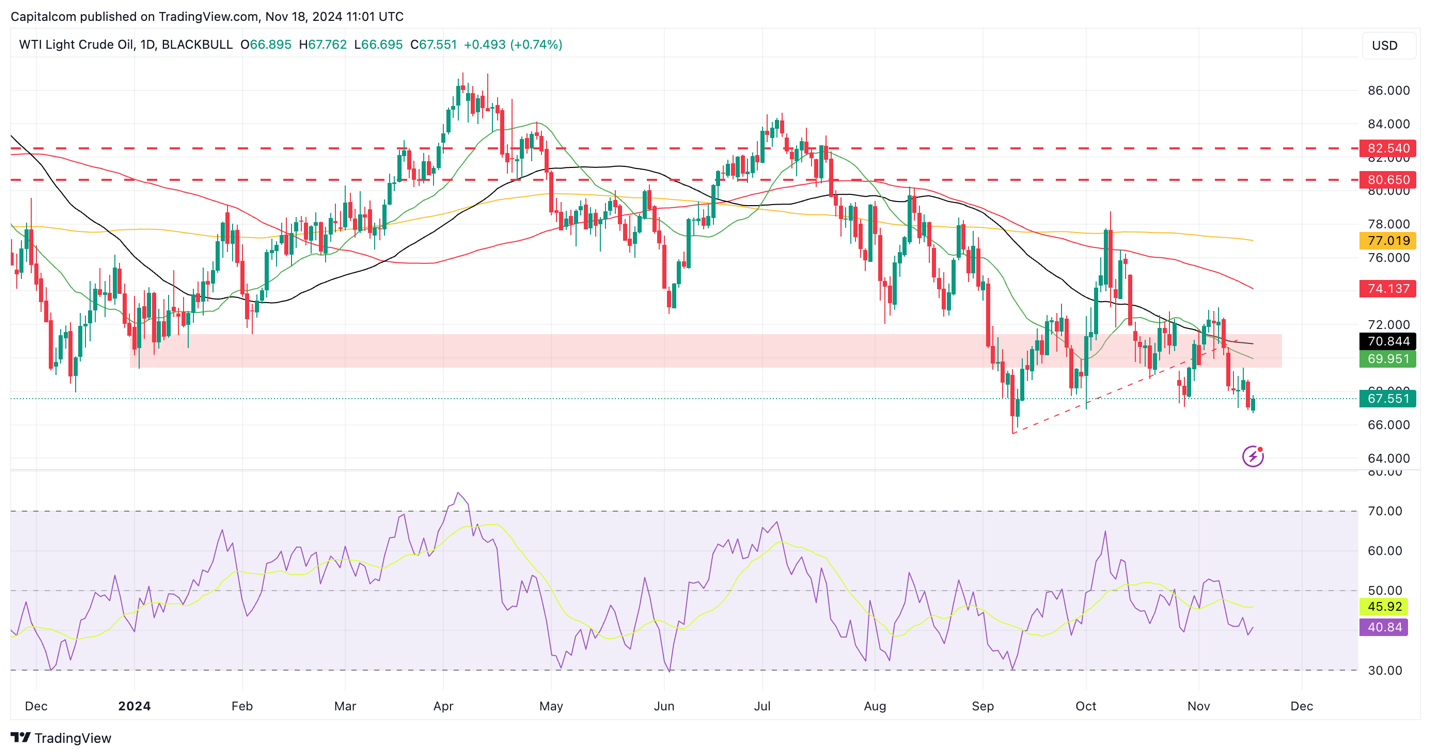US crude (WTI) attempts to rebound but faces continued pressure
After a heavy week in commodities prices seem to have stabilised on Monday with gold, silver and copper all attempting to bottom out and push higher after continued selloffs.
Meanwhile, US crude fared slightly better last week but took a hit on Friday after a larger-than-expected inventories buildup was revealed on Thursday, coupled with a rise in US producer price inflation.
The playoff between demand and supply continues to be the main driver in oil prices. On the one hand, there are still concerns about future demand as economic growth slows. China continues to be a key area of concern as consumer spending struggles to revive even after the massive amounts of stimulus unveiled by the Government last month. Higher expected terminal rates in the US and UK also threaten the bullish potential in oil prices as continued restrictive monetary policy could weigh further on growth.
On the flip side, ongoing political conflict has kept oil prices supported as investors continue to anticipate potential tightness in supply if attacks intensify, both in the Middle East region and Eastern Europe. So far, these conflicts have avoided major oil rigs which has actually weighed on oil prices in the past few weeks, but investors are not ready to fully let go of the potential for disruption in oil production.
It looks like oil prices will swing on industry developments and economic and political news for the foreseeable future. Short-term direction could be provided by economic developments in the US, with the latest data sending conflicting messages about the state of the economy. Inflation has stopped falling with core inflation remaining uncomfortably high, whilst the labour market is slowing but wages continue to grow.
On the chart, US crude (WTI) continues to look weak as the RSI failed to materially break above 50 ion the latest upward reversal at the beginning of November. Such upside has been limited to below $73 per barrel whilst sellers have managed to break below short-term support at $67. The moving averages are stacked in descending order above the price which suggests a bearish outlook in the short-to-medium term. Price volatility may continue in WTI so we could see an attempted reversal gather some steam over the coming weeks if there is a bullish catalyst in play, but in order to change the path of least resistance to the upside buyers will need to consolidate beyond $74 per barrel and break above some of the key daily moving averages.
US crude (WTI) daily chart
 Past performance is not a reliable indicator of future results.
Past performance is not a reliable indicator of future results.